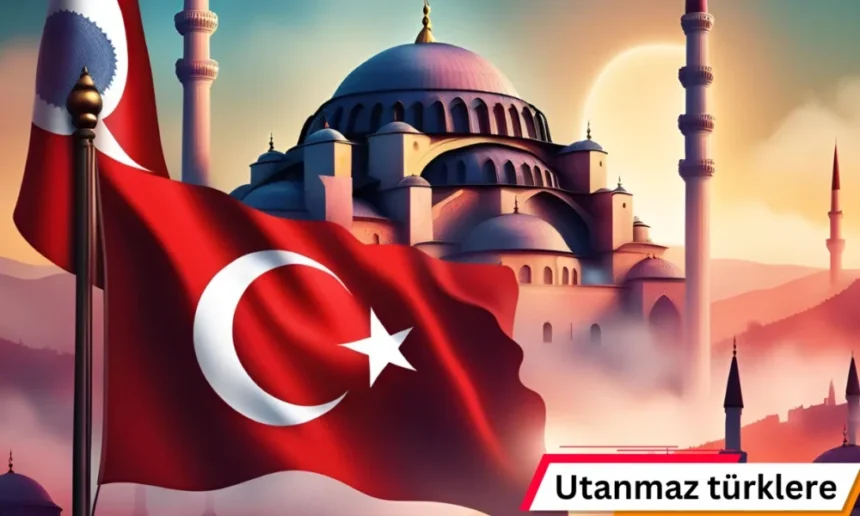Introduction to Utanmaz Türklere
Utanmaz Türklere is a term that sparks curiosity and conversation. It embodies a unique cultural identity rooted in history, tradition, and resilience. But what does it truly mean? As we delve into the origins of Utanmaz Türklere, we’ll uncover stories of key figures who have shaped its narrative and explore how this community has influenced society and politics over time. With controversies adding layers to its complexity, understanding Utanmaz Türklere becomes essential for grasping modern dynamics in Turkey today. Join us on this journey as we unravel the fascinating tapestry woven by those known as Utanmaz Türklere.
Origins and History of Utanmaz Turklere
The origins of Utanmaz Türklere trace back to a unique fusion of cultural influences. Emerging from the depths of Central Asia, these groups began their migration toward Anatolia over centuries.
As they settled in various regions, they absorbed local customs and traditions. This melding created a vibrant tapestry that defined their identity. The term ‘Utanmaz’ reflects an attitude rooted in pride and resilience.
Throughout history, significant events shaped this community’s trajectory. Wars, migrations, and political changes played pivotal roles in defining their social structure.
During the Ottoman Empire’s rise, many Utanmaz Türklere contributed to its expansion while retaining distinct cultural traits. Their presence became integral to the empire’s fabric.
This rich history has left lasting impressions on modern Turkish society today. It continues influencing art, language, and social norms within communities across Turkey.
Key Figures and Influences
Among the pivotal figures in the narrative of Utanmaz Türklere is Ziya Gökalp. His writings laid a foundational ideology that shaped Turkish nationalism and cultural identity.
Another significant personality is Atatürk, who transformed Turkey into a republic. His reforms influenced the socio-political landscape profoundly.
Additionally, contemporary voices like Orhan Pamuk have contributed to discussions around identity and culture within this context. They challenge traditional notions while promoting modern interpretations.
Scholars, activists, and artists continue to emerge as key influencers today. Each brings unique perspectives on what it means to be part of this evolving society.
These individuals not only reflect past ideals but also push boundaries for future generations. The ongoing dialogue about heritage remains vibrant and relevant in shaping public consciousness around Utanmaz Türklere.
Impact on Utanmaz Türklere Society and Politics
The impact of Utanmaz Türklere on society and politics is profound and multifaceted. This group has shaped cultural narratives, influencing how identity is constructed within the Turkish community.
Politically, their ideals have inspired movements that challenge traditional norms. These shifts often spark debates about freedom of expression and societal values.
Socially, the notion of Utanmaz Turklere promotes a sense of pride among individuals who identify with this ethos. It encourages resilience against external pressures to conform.
Their influence can be seen in various sectors, from art to education. Artists draw on these themes to provoke thought and discussion within communities.
Moreover, policy discussions frequently reflect the dichotomy between progressive ideas associated with Utanmaz Türklere and more conservative viewpoints. The resulting tension contributes to a dynamic political landscape where change is both welcomed and resisted.
Controversies and Criticisms
Utanmaz Türklere has not been without its controversies. Critics often highlight discrepancies in the movement’s portrayal of historical events. The narratives presented may sometimes oversimplify complex issues, leading to polarized views.
Another contentious aspect lies in the treatment of dissenting opinions within the community. Many feel that differing perspectives are stifled, creating an echo chamber effect. This can hinder constructive dialogue and growth.
Moreover, some argue that certain key figures have leveraged their influence for personal gain rather than communal benefit. This raises questions about authenticity and commitment to collective goals.
The intersection of culture and politics also fuels debate. Some members believe political affiliations compromise the original intent of Utanmaz Türklere principles, causing rifts among supporters.
These criticisms reflect a broader tension between tradition and progress, revealing how dynamic this community truly is amidst ongoing debates.
Modern-Day Relevancy
The concept of Utanmaz Türklere continues to resonate in today’s society. As cultural identities evolve, the values and principles associated with this term play a pivotal role in shaping modern Turkish discourse.
Social media platforms are buzzing with discussions around Utanmaz Türklere. These conversations often highlight national pride, cultural heritage, and contemporary challenges facing Turkish citizens.
Young generations are especially engaged. They tap into history while redefining what it means to be part of this legacy today. This connection fosters a sense of belonging and community.
Political landscapes also reflect these ideals, influencing policy decisions that resonate deeply with local populations. Understanding how historical narratives shape current events is essential for active citizenship.
Art and literature further explore these themes, bridging past experiences with present realities. The reflection on identity through various mediums enriches societal dialogue about being unapologetically oneself within the Turkish context.
Conclusion
Exploring the concept of utanmaz türklere opens a window into a rich cultural tapestry. Each thread tells stories of resilience and identity.
This group has shaped societal norms and political landscapes throughout history. Their influence continues to resonate today.
Understanding their journey is essential for grasping contemporary dynamics within Turkish society. The complexities surrounding this topic invite further exploration rather than simple conclusions.
As discussions about utenmaz turklere evolve, new perspectives emerge. These insights can deepen our appreciation for diverse narratives in history and culture.
The legacy left by such groups reminds us of the importance of dialogue and understanding in bridging gaps between communities. Engaging with these ideas propels us toward a more inclusive future where every voice matters.
FAQs
Q: What does “utanmaz türklere” mean?
A: The term “utanmaz türklere” translates to “shameless Turks,” referring to various cultural and social movements within Turkish society that challenge traditional values. It represents a segment of the population that embraces boldness in their expressions.
Q: How did the concept of utanmaz türklere originate?
A: The origins can be traced back to shifts in societal norms, especially during periods of modernization and globalization. As Turkey evolved, so did its cultural narratives, leading to the emergence of this distinct group.
Q: Who are some key figures associated with utanmaz türklere?
A: Several artists, writers, and activists have played significant roles in shaping the identity and influence of utanmaz türklere. They often challenge conservative views through their work while promoting liberal ideas.
Q: What is the impact on Turkish society today?
A: Utanmaz türklere continues to affect contemporary debates surrounding freedom of expression, gender rights, and political activism. This movement sparks discussions about modernity versus tradition across various platforms.
Q: Are there any criticisms against utanmaz türklere?
A: Yes, critics argue that some elements within this group can become too provocative or dismissive of more conservative perspectives. Balancing individual freedoms with societal values remains a contentious issue.
Q: How relevant is uden mazturkler now compared to previous decades?
A: Today’s globalized context has amplified voices from afar. The relevance persists as younger generations continue questioning established norms while seeking authenticity in their identities amidst rapid change.








